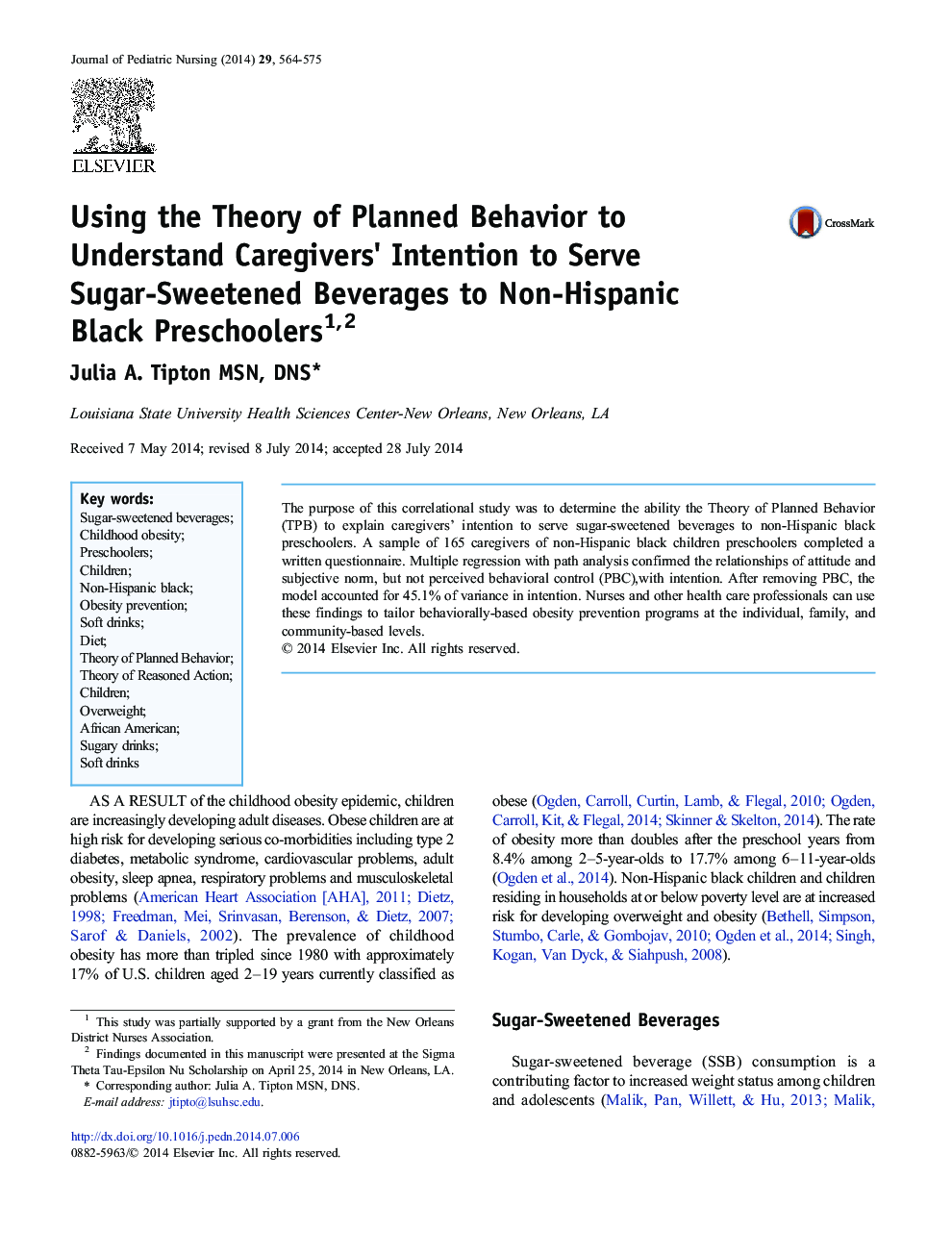| Article ID | Journal | Published Year | Pages | File Type |
|---|---|---|---|---|
| 2665684 | Journal of Pediatric Nursing | 2014 | 12 Pages |
•We examine underlying factors of caregivers' decision to serve sugary drinks to preschoolers.•The Theory of Planned Behavior provides the framework for the study.•We evaluate of attitude, subjective norm and perceived behavioral control to explain intent.•Attitude and subjective norm significantly predict intention.•Behaviorally based strategies to reduce sugary drink intake are recommended.
The purpose of this correlational study was to determine the ability the Theory of Planned Behavior (TPB) to explain caregivers' intention to serve sugar-sweetened beverages to non-Hispanic black preschoolers. A sample of 165 caregivers of non-Hispanic black children preschoolers completed a written questionnaire. Multiple regression with path analysis confirmed the relationships of attitude and subjective norm, but not perceived behavioral control (PBC),with intention. After removing PBC, the model accounted for 45.1% of variance in intention. Nurses and other health care professionals can use these findings to tailor behaviorally-based obesity prevention programs at the individual, family, and community-based levels.
